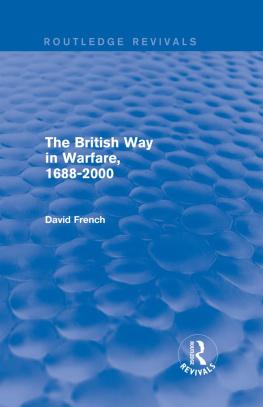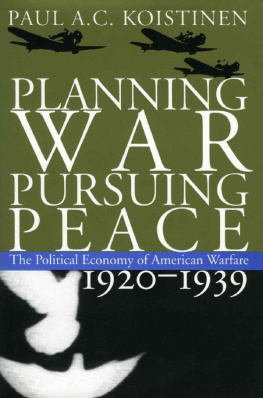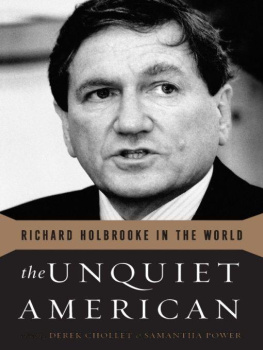WAR TIME
ALSO BY MARY L. DUDZIAK
Exporting American Dreams: Thurgood Marshalls African Journey
Legal Borderlands: Law and the Construction of American Borders (coeditor)
September 11 in History: A Watershed Moment? (editor)
Cold War Civil Rights: Race and the Image of American Democracy

Oxford University Press, Inc., publishes works that further
Oxford Universitys objective of excellence
in research, scholarship, and education.
Oxford New York
Auckland Cape Town Dar es Salaam Hong Kong Karachi
Kuala Lumpur Madrid Melbourne Mexico City Nairobi
New Delhi Shanghai Taipei Toronto
With offices in
Argentina Austria Brazil Chile Czech Republic France Greece
Guatemala Hungary Italy Japan Poland Portugal Singapore
South Korea Switzerland Thailand Turkey Ukraine Vietnam
Copyright 2012 by Mary L. Dudziak
Published by Oxford University Press, Inc.
198 Madison Avenue, New York, NY 10016
www.oup.com
Oxford is a registered trademark of Oxford University Press
All rights reserved. No part of this publication may be reproduced,
stored in a retrieval system, or transmitted, in any form or by any means,
electronic, mechanical, photocopying, recording, or otherwise,
without the prior permission of Oxford University Press.
Library of Congress Cataloging-in-Publication Data
Dudziak, Mary L., 1956
War time : an idea, its history, its consequences / Mary L. Dudziak.
p. cm.
Includes bibliographical references and index.
ISBN 978-0-19-977523-1 (hbk.: alk. paper)
1. War. 2. War (Philosophy.) 3. TimePhilosophy.
4. TimeSocial aspectsUnited States.
5. United StatesHistory, Military21st century.
6. United StatesHistory, Military20th century.
I. Title. II. Title: Wartime, an idea, its history, its consequences.
U21.2.D75 2012
355.020973dc23 2011026311
9 8 7 6 5 4 3 2 1
Printed in the United States of America
on acid-free paper
To Bill and Alicia
WAR consisteth not in battle only, or the act of fighting;
but in a tract of time, wherein the will to contend by
battle is sufficiently known; and therefore the notion of
time, is to be considered in the nature of war.
Thomas Hobbes, Leviathan
CONTENTS
WAR TIME
Introduction
WHAT KIND OF TIME IS a wartime? In war, regular time is thought to be interrupted, and time is out of order. During World War I, soldiers synchronized their watches before heading into combat. Yet battle became an extended present, as considerations of past and future were suspended by the violence of the moment. In the trenches, the historian Eric J. Leed has written, the roaring chaos of the barrage effected a kind of hypnotic condition that shattered any rational pattern of cause and effect, so that time had no sequence. And so one meaning of wartime is the idea that battle suspends time itself.
War also breaks time into pieces, slicing human experience into eras, creating a before and an after. It marks the beginning of one historical period, and the end of another, so that the historian Cheryl A. Wells writes that the American Civil War split nineteenth-century American time into two discrete units, antebellum and postbellum. Once historical time is divided, war is thought to occupy a certain kind of time. Wartime.
Yet wartime is more than a historical signpost, a passive periodizer, and therefore is not only the province of historians. It is thought to function as an abstract historical actor, moving and changing society and creating particular conditions of governance. The Roman philosopher and statesman Ciceros ancient saying, In time of war, law is silent (inter arma silent leges), is regularly invoked for the proposition that law and politics differ during wartime.becomes a justification for a rule of law that bends in favor of the security of the state. Traditionally, this distortion has been tolerated because wars end. In the twenty-first century, however, we find ourselves in an era in which wartimethe war on terrorseems to have no endpoint. This generates an urgent problem in American law and politics: how can we end a wartime when war doesnt come to an end?
This book takes up the idea of wartime and its effects, showing that a set of ideas about time are embedded in the way we think about war. In particular, we tend to assume that wartime is always followed by peacetime, and therefore that an essential aspect of wartime is that it is temporary. The assumption of temporariness becomes an argument for exceptional policies, such as torture. And those who cross the line during war sometimes argue that circumstances deprive them of agency; their acts are driven or determined by time.
Assumptions about the temporality of war are embedded in American legal and political thought. It is as if time were a natural phenomenon with an essential nature, shaping human action and thought. But our ideas about wartime clash with our experience of twenty-first-century war, revealing that a confusion about time obscures our understanding of contemporary war.
Much attention has been paid in recent years to wartime as a state of exception, but not to wartime as a form of time. For the Italian political philosopher Giorgio Agamben, a state of exception is a suspension of the legal order itself, marking laws boundaries.form of law we usually practice, rather than a suspension of an idealized understanding of law.
This book takes up the different ways that ideas about time affect our understanding of war. The chapters do not follow a conventional narrative history of war, but instead examine how war and time are imagined. The focus is on the concept of wartime and its consequences.
This is not a merely academic enterprise, however. My aim is to illuminate a conundrum: we imagine wars to be bound in time, but the American experience is to the contrary. Since 9/11, war has been framed in a boundless way, extending anywhere in the world that the specter of terrorism resides, even as some of the countrys political leaderson the left and rightdenounce its seeming endlessness. This book cannot explain how to bring war to an end, of course, but it can help to illuminate the way confusion about war and time helps to enable our politics of war.
examines ideas about time itself. We tend to think of time as a feature of the natural world, but our understanding of time is part of the culture of our age. Wartime, like other kinds of time, does not have an essential nature, but is a product of culture and history. We tend to believe that there are two kinds of time, wartime and peacetime, and history consists of moving from one kind of time to the next. Built into the very essence of our idea of wartime is the assumption that war is temporary. The beginning of a war is the opening of an era that will, by definition, come to an end. When we look at the full time line of American military conflicts, however, including the small wars and the so-called forgotten wars, there are not many years of peacetime. This shows us that war is not an exception to normal peacetime, but instead an enduring condition.
takes up a major war of the twentieth century, World War II. We assume we know when this war happened, from the shock of Pearl Harbora date which will live in infamy, as President Roosevelt called itto the excitement of V-J day captured in an iconic photograph of a sailor kissing a nurse in New Yorks Times Square. But this war is harder to place in time than we think, as the legal consequences bled out beyond these iconic moments, and there were not one but many endings to the war, spanning a period of years. Still, our memory of World War II remains encapsulated between certain dates, and this informs our ideas about what real war is.
Next page





